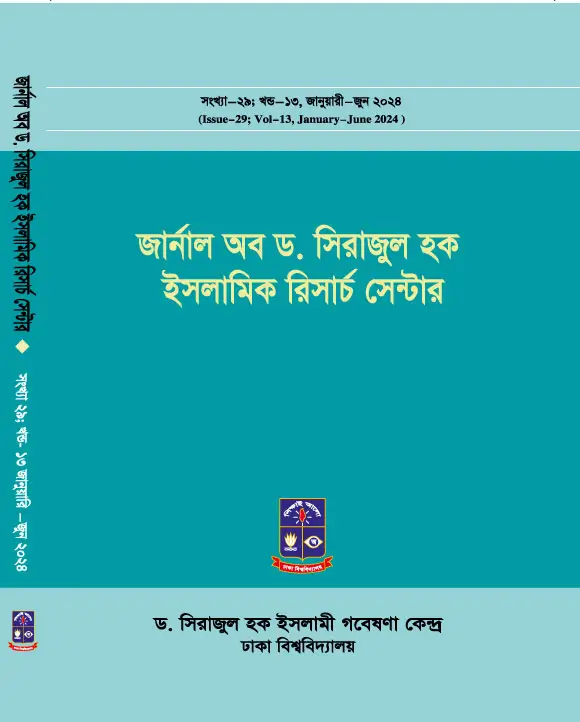
Issue-29, Volume-13, January-June 2024
ISSN : 1997 – 857X (Print)
Journal of Dr. Serajul Haque Centre for Islamic Research
The Distinct and Self-Sufficient Nature of the Islamic Economic System
- Md. Ishaq
- Authors Email: ishaque055@gmail.com
Date of submission: 01 April 2024
Date of Acceptance: 26 June 2024
Journal of DSHCIR
Issue-29, Volume-13, January-June 2024
DOI:
ISSN : 1997 – 857X (Print)Page: 89-116
Abstract
The importance of the economy in human life is immense. Its significance has grown enormously in the present age due to various reasons. Several economic doctrines have emerged based on class divisions, exploitation, and deprivation. Since the era of the Khulafa-e-Rashidun, the social, political, and economic ideals of Islam have rarely been reflected in Muslim societies, and their practice has also diminished over time. Especially in light of the changing circumstances of the modern era, there is a dire need for suitable books that explore the economic ideals and systems of Islam. This gap is even more noticeable in the Bengali language. Every society has a philosophy of life that guides its worldly activities. For Muslims, this foundation is the Holy Quran, Sahih Hadith, Ijma, and Qiyas, emphasizing Tawhid, Risalat, and Akhirat. These core beliefs shape the faith of Muslims and influence every aspect of their lives and work. Since economics constitutes a large part of life and work, the principles of Tawhid, Risalat, and Akhirat are equally relevant in this sphere. Based on this philosophy, Islamic economic activities revolve around a prosperous and dynamic economic system. Islamic economics is a crucial part of the Islamic philosophy of life, with the Qur’an and Hadith serving as its primary sources. Islamic scholars and economists have explored this subject throughout history. Islam is a complete way of life, and Islamic economics is an essential branch of its system, serving as a means to achieve broader Islamic objectives. This article aims to reflect on such insights.
